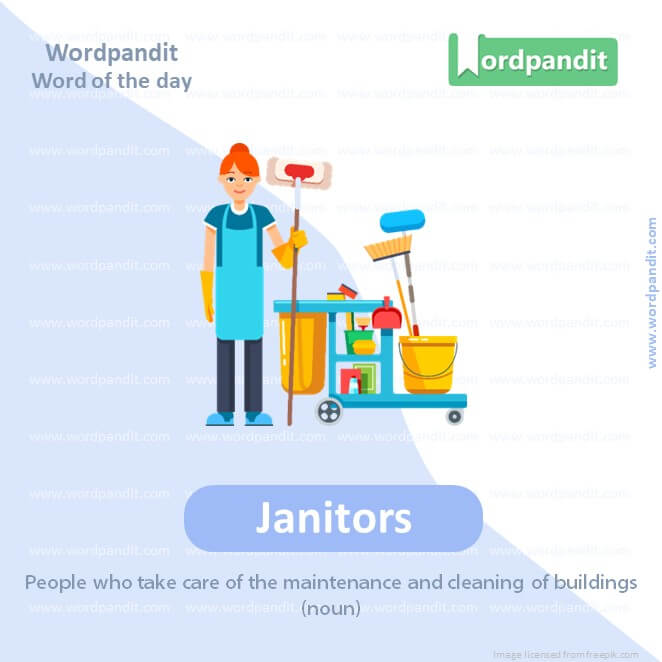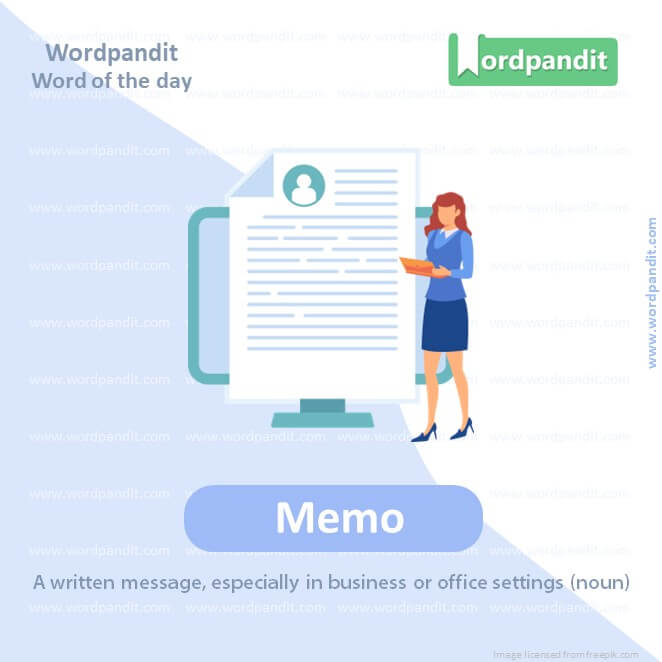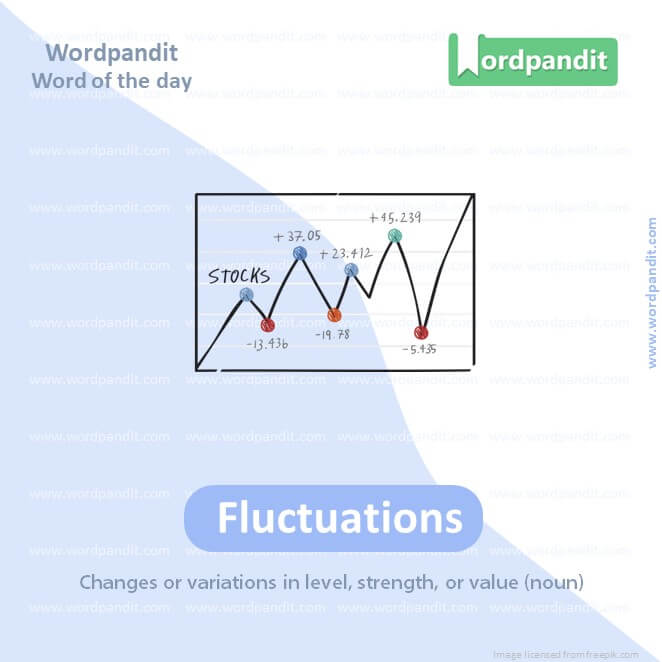Daily Vocabulary Words: List of Daily Used Words in Leading International Newspapers
Hi there. Welcome to this special section @ Wordpandit.
Our endeavour here is very simple: to highlight important daily vocabulary words, which you would come across in leading newspapers in the country. We have included the following newspapers in our selection:
• The New York Times
• The Washington Post
• Scientific American
• BBC
• The Guardian
• Psychology Today
• Wall Street Journal
• The Economist
We are putting in extensive work for developing your vocabulary. All you have got to do is be regular with this section and check out this post on a daily basis. This is your repository of words that are commonly used and essentially, we are posting a list of daily used words. Hence, this has significant practical application as it teaches you words that are used commonly in leading publications mentioned above.
Visit the website daily to learn words from leading international newspapers.
WORD-1: Overshadowed
CONTEXT: Taiwanese voices are often drowned out by Chinese and American narratives, overshadowed by the global power plays going on around us. Few people outside the region understand what life is actually like for the Taiwanese people caught in between two superpowers. I made this documentary to show life in Taiwan through the eyes of the people who live there, including me.
SOURCE: The New York Times
EXPLANATORY PARAGRAPH: Imagine you’re standing in the shadow of a really big tree, and the tree is so big that you can’t see the sun anymore. That’s like being overshadowed. It means something big or important is getting all the attention, and you or something else is not being noticed because of that big thing.
MEANING: Made less noticeable or less important because of something else that is attracting more attention or is more significant (verb).
PRONUNCIATION: oh-ver-shad-ohd
SYNONYMS: eclipsed, outshone, dominated, dwarfed, overpowered
USAGE EXAMPLES:
1. The success of the sequel overshadowed the original movie.
2. Her younger sister’s talent in dancing often overshadowed her achievements in academics.
3. The massive skyscraper overshadowed the small buildings around it.
4. The event was overshadowed by the news of the mayor’s resignation.

WORD-2: Janitors
CONTEXT: Mr. Krugman is right in pointing out the inequality connected to proposals to raise the age at which one becomes eligible for Social Security. As he points out, the proposals are, “in effect, saying that the aging janitors must keep working (or be cast into extreme poverty) because rich bankers are living longer.”
SOURCE: The New York Times
EXPLANATORY PARAGRAPH: Janitors are like the superheroes of keeping places clean and fixing small things. They help clean schools, buildings, and offices, and they also make sure everything is working right, like lights and doors.
MEANING: People who take care of the maintenance and cleaning of buildings (noun).
PRONUNCIATION: jan-i-tors
SYNONYMS: custodians, caretakers, cleaners, stewards, maintenance workers
USAGE EXAMPLES:
1. The janitors at the school work hard to keep the classrooms clean.
2. Every evening, the janitor checks all the doors to make sure they are locked.
3. The office janitors clean the windows every week.
4. She thanked the janitor for fixing her desk drawer.
WORD-3: Impending
CONTEXT: But it’s even worse than that. The problem of an impending shortfall of the Social Security Trust Fund is in significant part a consequence of our rising economic inequality. High-income people pay a smaller share of their income into Social Security because salary over $160,200 — the so-called “tax max” — is not subject to the Social Security tax.
SOURCE: The New York Times
EXPLANATORY PARAGRAPH: Impending is like when you know something is about to happen very soon. Like when you see dark clouds, you know it’s going to rain soon. It’s like waiting for something that’s just about to happen.
MEANING: About to happen or likely to occur in the near future (adjective).
PRONUNCIATION: im-pen-ding
SYNONYMS: approaching, forthcoming, looming, upcoming, imminent
USAGE EXAMPLES:
1. The impending storm made everyone hurry back home.
2. She was nervous about her impending exam.
3. The dark clouds signaled the impending rain.
4. They were excited about the impending holiday season.

WORD-4: Envision
CONTEXT: Also, there is no Social Security tax on income from capital (including dividends, interest, capital gains and rents), which tends to go to wealthy people. Consequently, as a larger and larger part of our national income goes to the rich, the share collected by the Social Security tax declines. The solution is not hard to envision: Raise the “tax max” and tax income from capital. Better yet, adopt a set of policies that would move us toward a more equal distribution of income.
SOURCE: The New York Times
EXPLANATORY PARAGRAPH: Envision is like using your imagination to see a picture in your mind of something that could happen in the future. It’s like dreaming about what you want to do or what you want something to be like.
MEANING: Imagine as a future possibility or visualize something in the mind (verb).
PRONUNCIATION: en-vizh-un
SYNONYMS: imagine, foresee, picture, visualize, contemplate
USAGE EXAMPLES:
1. She could envision herself becoming an astronaut.
2. He envisioned a world where everyone was kind to each other.
3. The architect envisioned a modern building design.
4. Can you envision what your dream house would look like?

WORD-5: Memo
CONTEXT: The good news is that the team behind the magazine will remain largely intact. The memo said that the staff will step up its production of audio, video and events and will continue to emphasize “ambitious long-form journalism” — “long-form” being a term of art for “long.”
SOURCE: The New York Times
EXPLANATORY PARAGRAPH: A memo is like a short note that tells people important things they need to know. It’s used in places like schools or offices to share information quickly with many people.
MEANING: A written message, especially in business or office settings (noun).
PRONUNCIATION: meh-moh
SYNONYMS: memorandum, note, message, communication, bulletin
USAGE EXAMPLES:
1. The manager sent out a memo about the new office rules.
2. Did you read the memo about the staff meeting next week?
3. She posted the memo on the bulletin board.
4. The memo reminded everyone about the deadline.
WORD-6: Disproportionate
CONTEXT: “Business Week’s editorials offered perhaps the most sophisticated Keynesian-style economic analysis of any mass publication, and its influence may have been disproportionate to its circulation, as it targeted an elite audience of businessmen,” Ranjit Dighe, an economics professor at the State University of New York, Oswego, wrote in a 2011 paper.
SOURCE: The New York Times
EXPLANATORY PARAGRAPH: Disproportionate is like when one part of something is much bigger or smaller than it should be compared to the other parts. Imagine one slice of pizza is much bigger than the rest. That’s disproportionate.
MEANING: Too large or too small in comparison with something else (adjective).
PRONUNCIATION: dis-pruh-por-shuh-nit
SYNONYMS: unbalanced, unequal, uneven, lopsided, incommensurate
USAGE EXAMPLES:
1. The small village faced a disproportionate amount of traffic.
2. Her contribution to the project was disproportionate to her colleagues.
3. The punishment was disproportionate to the offense.
4. There was a disproportionate number of people in one team.

WORD-7: Fluctuations
CONTEXT: From 1954 to 1969, the magazine’s coverage was led by Leonard Silk, who held a doctorate in economics and later became a columnist for this newspaper. I started covering economics for the magazine in the 1990s under the tutelage of Michael Mandel, like Silk a Ph.D. economist, who was early to understand and write about the influence of technology on economic growth and fluctuations.
SOURCE: The New York Times
EXPLANATORY PARAGRAPH: Fluctuations are like when things go up and down or change a lot. Imagine the way a boat moves up and down on the waves in the ocean. That’s like how things fluctuate.
MEANING: Changes or variations in level, strength, or value (noun).
PRONUNCIATION: fluk-choo-ay-shuns
SYNONYMS: variations, changes, shifts, oscillations, swings
USAGE EXAMPLES:
1. The fluctuations in temperature made it hard to choose what to wear.
2. There were significant fluctuations in the stock market today.
3. His mood showed fluctuations throughout the day.
4. The scientist recorded the fluctuations in the experiment’s data.

WORD-8: Astonishingly
CONTEXT: Businessweek was “astonishingly” successful over the years, Stephen Shepard, who was editor in chief from 1984 to 2005, wrote to me in an email. He added, “It was highly profitable for decades, often carrying more ad pages a year than any other magazine, with The New Yorker a close second.”
SOURCE: The New York Times
EXPLANATORY PARAGRAPH: Astonishingly is like when something is so amazing or surprising that it makes you say “Wow!” Imagine seeing a magician pull a rabbit out of a hat, and you can’t believe it. That’s astonishingly surprising.
MEANING: In a way that causes great surprise or amazement (adverb).
PRONUNCIATION: uh-ston-nish-ing-lee
SYNONYMS: amazingly, surprisingly, remarkably, incredibly, wondrously
USAGE EXAMPLES:
1. Astonishingly, the little dog jumped over the high fence.
2. The cake was astonishingly delicious.
3. She finished the puzzle astonishingly quickly.
4. The team won the match astonishingly easily.
WORD-9: Ridiculous
CONTEXT: In this era of nearly instant communication, it’s faintly ridiculous that people are still growing trees, cutting down trees, making paper, etc., etc. Printing and mailing costs have soared in recent years.
SOURCE: The New York Times
EXPLANATORY PARAGRAPH: Ridiculous is like when something is so silly or funny that it makes you laugh. Imagine a cat wearing a tiny hat and sunglasses. That might seem ridiculous because it’s so unusual and funny.
MEANING: Very silly or unreasonable (adjective).
PRONUNCIATION: ri-dik-yuh-lus
SYNONYMS: absurd, ludicrous, preposterous, laughable, nonsensical
USAGE EXAMPLES:
1. The idea of a flying car seemed ridiculous to many.
2. He made a ridiculous claim that he could run faster than a car.
3. Wearing a coat in the summer is ridiculous.
4. The comedy movie was full of ridiculous jokes.
WORD-10: Soared
CONTEXT: In this era of nearly instant communication, it’s faintly ridiculous that people are still growing trees, cutting down trees, making paper, etc., etc. Printing and mailing costs have soared in recent years.
SOURCE: The New York Times
EXPLANATORY PARAGRAPH: Soared is like when something goes really high up in the air. Like when you see a bird flying higher and higher in the sky, it’s soaring. It means to rise or go up quickly.
MEANING: Flew or rose high in the air (verb).
PRONUNCIATION: sord
SYNONYMS: ascended, climbed, skyrocketed, rose, escalated
USAGE EXAMPLES:
1. The eagle soared above the mountains.
2. Her spirits soared when she heard the good news.
3. The temperature soared to 100 degrees yesterday.
4. The airplane soared into the sky after takeoff.
Vocabulary Meaning and Examples
In the fascinating world of language learning, a method particularly impactful is learning ‘vocabulary meaning and examples’. Harnessing this dual approach of understanding words through definitions and relevant examples yields a sound vocabulary grasp. Let’s explore how we can effectively learn vocabulary using ‘meaning and examples’.
Foremost, recognizing ‘meaning and examples’ involves more than just a surface glance at the definition. It requires an engaged interaction with the word, placing it within a proper context. This enriches comprehension and facilitates an innate understanding of the word’s applications.
The process of learning ‘meaning and examples’ is made highly effective through varied resources. Reading literature, online articles, and language learning platforms offer numerous examples enriching the meanings. By frequently encountering a word in various contexts, the understanding of the ‘meaning and examples’ deepens, imprinting the word into long-term memory.
When learning ‘meaning and examples’, creating personal sentences is recommended. Develop your own examples using the given word. This personal connection between learned vocabulary and your everyday life context strengthens both familiarity and recall.
Moreover, taking notes while studying ‘meaning and examples’ goes a long way in mastering vocabulary. Jotting down the definition and a couple of examples for reference leads to better recall during revisions.
Finally, teach to learn. A tried-and-true method to solidify ‘meaning and examples’ is by explaining the word to someone else. This exercise forces you to articulate the word’s usage and understanding clearly, embedding it further in your memory.
In conclusion, the journey to learn ‘vocabulary meaning and examples’ is a rewarding process that involves a multifaceted approach. As you dive into the rich experience of understanding words through ‘meaning and examples’, you uncover the nuance and depth of language, enabling you to master it in its true sense.







